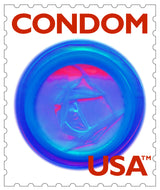HIV is most commonly diagnosed by testing your blood or saliva for the presence of antibodies to the virus. Unfortunately, these types of HIV tests aren't accurate immediately after infection because it takes time for your body to develop these antibodies — usually up to 12 weeks. In rare cases, it can take up to six months for an HIV antibody test to become positive.
A newer type of test checks for HIV antigen, a protein produced by the virus immediately after infection. This test can confirm a diagnosis within days of infection. An earlier diagnosis may prompt people to take extra precautions to prevent transmission of the virus to others. There is also increasing evidence that early treatment may be of benefit.
Tests to tailor treatment
If you receive a diagnosis of HIV/AIDS, several types of tests can help your doctor determine what stage of the disease you have. These tests include:
- CD4 count. CD4 cells are a type of white blood cell that's specifically targeted and destroyed by HIV. A healthy person's CD4 count can vary from 500 to more than 1,000. Even if a person has no symptoms, HIV infection progresses to AIDS when his or her CD4 count becomes less than 200.
- Viral load. This test measures the amount of virus in your blood. Studies have shown that people with higher viral loads generally fare more poorly than do those with a lower viral load.
- Drug resistance. This blood test determines whether the strain of HIV you have will be resistant to certain anti-HIV medications and the ones that may work better.
Tests for complications
Your doctor might also order lab tests to check for other infections or complications, including:
- Tuberculosis
- Hepatitis
- Toxoplasmosis
- Sexually transmitted infections
- Liver or kidney damage
- Urinary tract infection






Leave a comment